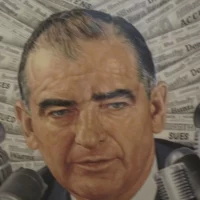Public perception of gay rights, including the right to marry and to serve in the military, has undergone a sea change in the last few years, so much so that President Obama nominated five openly gay ambassadors. However, it was not that long ago when simply being gay meant automatic suspicion as a security risk… Read More "Being Gay in the Foreign Service"
“It was something out of a B movie” — The 1980 Coup in Bolivia
Social unrest, political fragmentation, drug trafficking, and violence all characterized the late 70’s in Bolivia. All of the major parties failed to gain a majority vote, coups were attempted with an alarming frequency, and human rights violations were severe and widespread. In the early 80’s, Bolivia transitioned to democracy, but that transition was far from… Read More "“It was something out of a B movie” — The 1980 Coup in Bolivia"
A Short History of Demarching Orders
A demarche is the term of art for formal instructions sent from a Ministry of Foreign Affairs (or the State Department) in the capital out to an embassy outlining that country’s position on a particular topic. The topic may be routine (a pro forma administrative matter in the UN) or highly sensitive (criticism of the… Read More "A Short History of Demarching Orders"
Delivering the Mail and Avoiding Martial Law in South Korea, 1987
Chun Doo-hwan, president of South Korea from 1980 to 1988, seized power in 1979 and crushed many democratization movements during his controversial rule. According to the South Korean constitution, Chun was limited to seven years in power, but as the end of his term approached, it was not clear that he would step down. By late… Read More "Delivering the Mail and Avoiding Martial Law in South Korea, 1987"
The Tiananmen Square Massacre — June 4, 1989
The 1989 massacre at Tiananmen Square was one of the most heart-wrenching displays of state suppression of peaceful assembly in recent history. Following the death of pro-reform Communist leader Hu Yaobang in April 1989, thousands of Chinese students gathered in Beijing’s Tiananmen Square to march in his memory. Within days the gathering had transformed into… Read More "The Tiananmen Square Massacre — June 4, 1989"
The Fall of South Korean Strongman Syngman Rhee — April 26,1960
Syngman Rhee, a staunch anticommunist and authoritarian, was the first president of South Korea. Backed by the United States, Rhee was appointed head of the Korean government in 1945 before winning the country’s first presidential election in 1950. He led South Korea through the Korean War, but because of widespread discontent with corruption and political… Read More "The Fall of South Korean Strongman Syngman Rhee — April 26,1960"
A Soul Filled with Shame –The Rwandan Genocide, April 7- July 18,1994
A colony of Belgium until 1962, Rwanda became dominated politically by the minority Tutsis. During the independence movement, the majority Hutus seized control of the government, killing thousands of Tutsis and forcing even more into exile. Many fled to Burundi and Uganda as refugees. Tensions between the two ethnic groups continued to fester over the… Read More "A Soul Filled with Shame –The Rwandan Genocide, April 7- July 18,1994"
“Two Men, One Grave” — The Execution of Pakistan’s Ali Bhutto
Zulfikar Ali Bhutto, founder of Pakistan People’s Party (PPP), served as president of Pakistan in the 1970s. By 1977, opposition against Bhutto and the PPP had grown due to incidents of repression, corruption, and alleged election fraud. Violence escalated across Pakistan, and Bhutto was overthrown by his army chief, General Zia-ul-Haq. Bhutto was put on… Read More "“Two Men, One Grave” — The Execution of Pakistan’s Ali Bhutto"
An American in Solzhenitsyn’s “Gulag Archipelago”
He was a victim of cruel fate, a young American living in the USSR forced to endure unimaginable torture and brutal beatings, who would later be one of the many sources for Gulag Archipelago. In 1933 Alexander Dolgun’s father went to the Soviet Union to work as an automotive technician; however, when his short-term contract… Read More "An American in Solzhenitsyn’s “Gulag Archipelago”"
With his infamous Wheeling, West Virginia speech on February 9, 1950, in which he declared he had a list of communists working in the State Department, Senator Joseph McCarthy ushered in one of the darker periods in the post-war era. The speech came at a time when the fear of communism and communist infiltrators in… Read More "McCarthy’s Red Herring"

